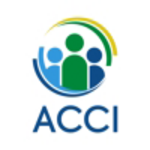
2025 Annual Conference
April 15–17, 2025
Omni William Penn, Pittsburgh, PA, USA
IMPORTANT NOTICE: The date, time, and room assignment of YOUR presentation is SUBJECT TO CHANGE.
Proposal authors can use this tool to see where they have been placed in the program agenda for an Oral or Poster Session.
Scroll down to search by the Submitter or Author Name, by Date/Time, or by Keywords by expanding FILTERS.
Confirm your place in the schedule by following the instructions that were emailed to you. Each presentation must have a separate paid registration. Contact the ACCI office immedicately by email at admin@consumerinterests.org to report any conflict, all corrections to the details of the presentation (including author names and the order they are listed as this is how it will be in the final program), or if you have any questions. Please be sure to reference the session title(s), date(s), and time(s) when you contact us.
P107 From Knowledge to Practice: Analyzing Consumer Antecedents of Circular Economy Behaviors
Short Description
This study examines consumer engagement in circular economy practices, specifically focusing on routine waste management behaviors such as waste sorting and reducing single-use items. Given the substantial greenhouse gas emissions from waste management and projected 50% increase in global waste by 2050, the urgency for sustainable practices is evident. Through the application of the Knowledge-Attitude-Practice (KAP) model and the Health Belief Model (HBM), this research investigates the influence of objective (factual) and subjective (self-assessed) knowledge on key attitudinal factors—perceived severity, susceptibility, benefits, and barriers—and their subsequent impact on circular economy behaviors. Utilizing data from the Public Attitudes towards the Environment: 2023 Survey, which includes 3,088 respondents, findings indicate that objective knowledge primarily informs attitudinal development, while subjective knowledge exerts a notably direct influence on behavior. Attitudinal factors, including perceived severity, susceptibility, benefits, and barriers, emerge as critical determinants of pro-environmental actions within a circular economy context. These findings underscore the necessity of promoting both factual understanding and consumer confidence through targeted policy and educational interventions, facilitating sustainable behavioral engagement. This integrated approach offers substantial implications for climate change mitigation by fostering consumer participation in circular economy initiatives.
Type of presentation
Accepted Oral Presentation